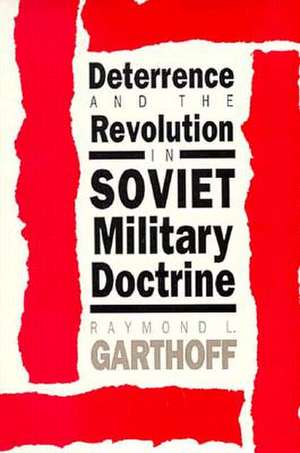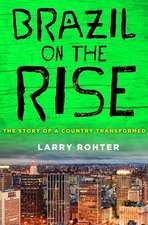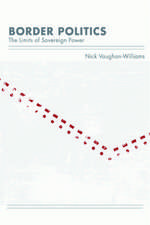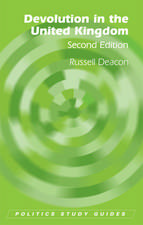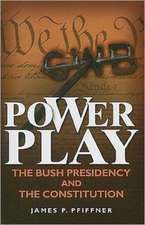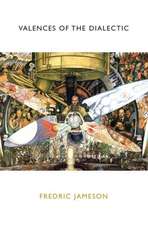Deterrence and the Revolution in Soviet Military Doctrine
Autor Raymond L. Garthoffen Limba Engleză Paperback – sep 1990
Dramatic changes under way in the Soviet union and the world have significant implications for American security policy. Soviet expert Raymond L. Garthoff makes use of unique, newly available material—including a complete file of the confidential Soviet General Staff journal—to illuminate the development of Soviet military thinking. In this groundbreaking study, Garthoff explains that the Soviets regard nuclear deterrence only as a necessary interim safeguard, not a solution to the quest for security. He examines the implications of the "remarkable recasting of the Soviet concept of security" for U.S. policy and global security.
Preț: 196.98 lei
Nou
Puncte Express: 295
Preț estimativ în valută:
37.69€ • 39.45$ • 31.37£
37.69€ • 39.45$ • 31.37£
Carte tipărită la comandă
Livrare economică 31 martie-14 aprilie
Preluare comenzi: 021 569.72.76
Specificații
ISBN-13: 9780815730552
ISBN-10: 0815730551
Pagini: 209
Dimensiuni: 152 x 229 x 15 mm
Greutate: 0.3 kg
Ediția:New.
Editura: Brookings Institution Press
Colecția Brookings Institution Press
ISBN-10: 0815730551
Pagini: 209
Dimensiuni: 152 x 229 x 15 mm
Greutate: 0.3 kg
Ediția:New.
Editura: Brookings Institution Press
Colecția Brookings Institution Press
Notă biografică
Raymond L. Garthoff is a guest scholar in the Foreign Policy Studies program at the Brookings Institution. He is the former ambassador to Bulgaria, former Deputy Director of the Bureau of Politico-Military Affairs at the U.S. Department of State
Descriere
Dramatic changes under way in the Soviet union and the world have significant implications for American security policy. Soviet expert Raymond L. Garthoff makes use of unique, newly available material—including a complete file of the confidential Soviet General Staff journal—to illuminate the development of Soviet military thinking. In this groundbreaking study, Garthoff explains that the Soviets regard nuclear deterrence only as a necessary interim safeguard, not a solution to the quest for security. He examines the implications of the "remarkable recasting of the Soviet concept of security" for U.S. policy and global security.
